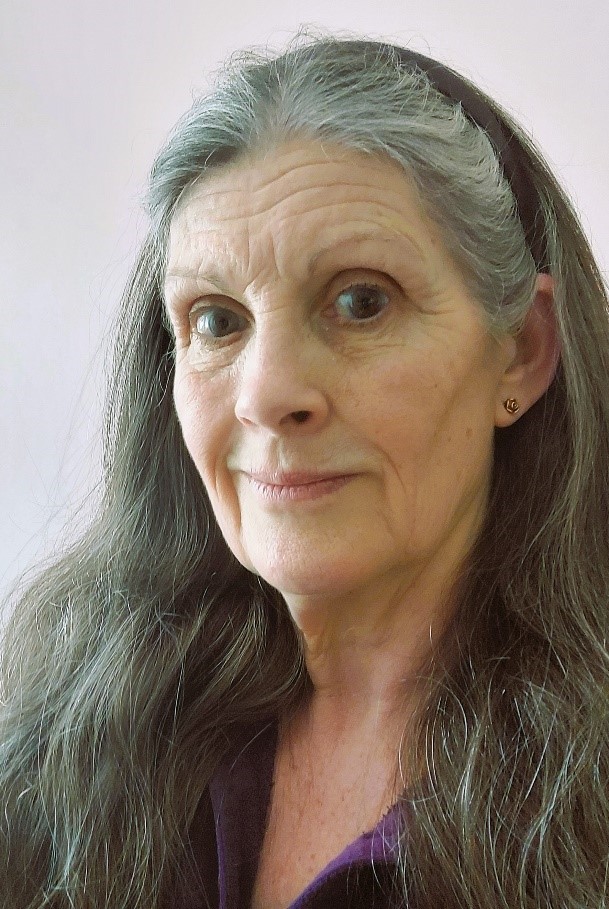
I first met Laura Lyndhurst on a Facebook page called “Best Book Editors: Authors, Readers, Others Welcome”, and we soon became friends. The group is a great place for meeting other authors and finding new books to read.
I know Laura is a busy lady and so I’m delighted she has found the time for a chat with me. Without further ado, I’d like to welcome Laura Lyndhurst to my blog.
Good morning, Laura, I thought we might start by learning a bit more about you. Perhaps you could tell me a bit about yourself?
Hi Marcia, and hello to your readers. Thank you for inviting me along to chat about my writing and my books.
I was born and grew up in North London, England, but was unable to attend university when young due to family financial circumstances. Instead, I worked in various occupations, including a dental nurse, laboratory assistant and shop assistant.
I married just before I was 20, and travelled to some interesting places around the world, following my husband’s career. I spent much time reading, a passion, but in order to keep further occupied, I took office jobs when these were available to me; I hated the work, but the money was useful.
When we were back in the UK I took evening classes at various times and gained ‘A’ levels in Psychology, Sociology, and English, eventually settling in Kent with my husband and becoming a mature student, gaining Bachelor’s and Master’s degrees in English and Literature before training and working as a teacher.
How many books have you written and which is your favourite?
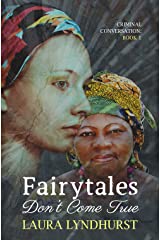
I’ve written eight books in total, four novels, made up of a trilogy of literary fiction, and one psychological suspense thriller. There are four books of poetry too, which came about by accident because I never meant to write poetry. But that’s a different story, and I’ll concentrate on the novels here. My favourite is Degenerate, Regenerate, the second in the trilogy.
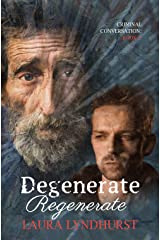
The first book, Fairytales Don’t Come True was always intended to be a stand-alone, but as I came to the end of it I realised there was another story to be written, and that became Degenerate, Regenerate. I loved writing it, it seemed to flow in a very natural way and wasn’t difficult, apart from getting the timing right and having it end at the time I wanted it to.

The third book, All That We Are Heir To, seemed necessary as a round-up of the first two, and that was to be it. I had an idea recently though, so now there’s a fourth in the pipeline, with a vague idea for a fifth, and a sequel to my psychological suspense story, You Know What You Did. Not bad for someone who was going to be one book-book author.
I can relate to all of that, Laura, as my first book, The Mazzard Tree was only ever intended to be a standalone book, and here I am working on book 4 in the series.
I’ve read the first two books in your trilogy, Laura, and enjoyed them both. I’m looking forward to the third book, All That We Are Heir To, but so far, Degenerate, Regenerate is also my favourite, and I’ve included a review of that book in my September Newsletter.
Here is my review for Fairytales Don’t Come True: This book is about two women with seemingly nothing in common. Dora is a middle-aged, happily married woman with two grown-up children, whilst Mags is a single mother and ex-prostitute. Mags, at only twenty-eight years old is dying from cancer and Dora is her palliative care nurse. Unusually for her, Dora finds it difficult to empathise with her patient, and to begin with is an unwilling listener to Mags’ life story. However, as the story unfolds night after night, Dora becomes engrossed and realises just how lucky she is never to have faced some of the difficult choices Mags was forced to make. Mags does not hold back in her description of her life as a prostitute, and Dora is shocked, but Mags feels the need to get it all off her chest and spares the religious Dora with none of the details. The information Dora is given leads her to question her relationship with her husband and she wonders if he is having an affair. She eventually confides her concerns to her patient. I once worked as a Marie Curie Nursing Auxiliary, caring for terminally ill patients in their own homes during the night. Inevitably people confide their fears and stories at a time like this and often find it easier to do so with a comparative stranger, rather than a loved one. However, I never shared a story like this!
What is your favourite genre to read, and why?
It has to be Literary Fiction. I began reading at an early age, and the first book I bought was Lorna Doone, at the age of seven. The BBC used to do dramatisations of the classics on Sunday evenings and they were doing this story. I couldn’t wait for it on TV though, at one episode a week, so I had to get the book and find out what happened. I read it from cover to cover and was disappointed at the ending of the TV adaptation when it happened. They didn’t have the ability to do special effects then as they do now, in all fairness. But I loved the book and still have it. I did read other things, anything I could get my hands on, but the classics were my first love.
Who is your favourite fictional character and why?
Maggie Tulliver, in The Mill on the Floss. I studied it at school when I was fourteen, and wrote an impassioned essay about it. George Eliot was making a point about the double standard that divided women and men at the time—and for some considerable time afterwards. It woke me up to the fact of this, and I got so angry at the way Maggie was treated, and all women who ‘crossed the line‘ by extension. It was a watershed moment in my understanding of the society I was living in.
What do you enjoy most about writing?

I love the moment when I have the idea for a story. I had one recently when I was on holiday. I hadn’t been thinking about writing or trying to find a new idea. I was okay with the fact that I’d written four novels and four poetry collections, and if I wrote nothing more I would have been happy. But the idea came into my head, apropos of nothing, and I began writing when I got home. I’ve been doing it since, alongside giving my existing novels an edit, but as I’ve just finished the latter it’s full steam ahead now with the new one. There’s a vague idea for one after that too, and a sequel for my stand-alone. It’s a good feeling when I’m energised like that.
How do you select the names of your characters?
It’s a bit hit or miss. Sometimes it’s a deliberate act, as a nod in the direction of someone who inspired me, and there are a couple of names in Fairytales like that. Most often, though, they’re the names of people who I know or have known or just names that I like. I put a character in Fairytales called Laura because it was a name I liked, and that was before I decided to use it as my pen-name, although the Laura in the book often voices my own views. I had a friend with an unusual name who was delighted to turn the page and find her name when she was reading the book. It’s a way of saying thank you for being a friend, I suppose.
Are your books self-published or traditionally published? If both, which method do you find works best for you?

I’m self-published because I couldn’t get an agent or a traditional publisher, I didn’t try that hard, to be honest, I’ve heard other authors talking about the huge number of rejections they received and how they found an agent and publisher after many years of trying. I’m in my sixties though, and I don’t want to spend years trying to go the traditional route. I’m lucky that there are facilities for self-publishing these days and having used that I now have eight books out there. I don’t think I’d have written anymore if I’d spent my time trying to find that elusive traditional deal. The more I find out about this profession, though, the more I’m glad that I’m an indie.
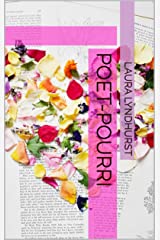
The traditional route, it appears, consists of effectively selling your book to the publisher, and having little say in what they do with it thereafter. You make the changes they want, or else; you may hate the cover image they choose, but you’re stuck with it, and I know authors who’ve had a rubbish deal from a traditional publisher. My work may not be as widely-known as I’d like it to be, but it is still mine and I have control over it.
Yes, I tend to agree. I’ve barely put any time or effort into trying to find an agent, and like you, I’m happy self-publishing. This way any pressure is only what I put on myself. There is no one else telling me what to do!
Did you have your books professionally edited, and do you send Advanced Reader Copies to your contacts?
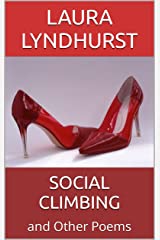
No to both, which I’ll explain. I knew little to nothing about this business when I wrote and self-published my first book. I did loads of self-editing—what I understood that to be, anyway—and thought it was enough to have neat margins, no typos—or as few as could escape scrutiny—and good punctuation.
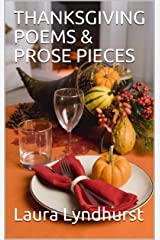
Recently I was given some training as a sub-editor by Sooz Simpson at Best Book Editors, and have undertaken some freelance work for her. Alongside that, though, I’ve given my own books a good edit, understanding at last what is needed for good line editing. I knew nothing of ARC copies either and had no one to whom to send the books anyway. When I knew a little more about what goes into self-publishing and self-marketing, I made a few good friends on social media who would beta-read for me, and I, for them. I’ll carry on doing this, which counts as advanced reading, I suppose.
What is your writing schedule like when you’re writing?
I don’t really have one. I’m a pantser, not a plotter, and I go with the flow of ideas. I could be found making notes on my phone in the middle of the night—or writing them out on the bathroom floor, before I had a smartphone, so as not to disturb my husband. Some days I’ll have loads of ideas, and sit to brain-dump them onto the PC. I’ve written over ten thousand words in one day like that. Other times I have no ideas at all, and that’s okay. I’m not one of those people who has to write something every day or the world will come to an end, I’m very relaxed about it. I had a friend who was an absolute plotter, who kept extolling the virtues of various programmes he used to plan his work. He was insistent that they’d be good for me, but I knew it wasn’t my way. He, for example, had decided that he’d be killing off a character in Chapter 7, whereas I don’t assign chapter numbers to my work until I’ve finished the manuscript and got it into good shape. I don’t plan when someone is going to die either, I don’t know until I’m into writing the thing, whether or not I’ll be killing anyone off. So I’m a bit ad hoc, I guess you could say, but I come up with the goods in the end.
Do you have any pet hates about the whole business of writing?
Yes, I have an issue with other authors who don’t write good reviews. I’m not talking about the reading public, who don’t, or can’t, necessarily want to write themselves. I have good non-writer friends who’ve read and loved my work, but they’re shy of trying to write any sort of review, however short, so they’ve just given a star rating and that’s okay because ratings count in the Amazon numbers game of reviews. I’m talking about authors, people who write books, blogs, magazine articles, whatever, of whom I’m one. I read and review many books, and I wasn’t very good at writing reviews to begin with, which is why I recently updated the reviews I’d given a few friends in those early days. But I worked at it, and now I don’t think it’s boasting to say that I write pretty good reviews. Someone told me that I could charge money for my reviews, and I probably could except that I wouldn’t. Until recently, I thought I’d never write another book, but I began again a few weeks ago when the idea came to me. In the interim, though, I’ve been writing reviews, alongside blogs, and it’s an art, something you work at and improve. It’s writing, keeping your hand in; you don’t have to write novels to call yourself a writer. But if you do write novels, and expect others to write decent reviews for them, then you should do likewise. I got very cross not long ago when someone who’d published their own book gave a ‘review’ to a fellow indie author. The ‘review’ consisted of a couple of lines of waffle that someone who’d never read the book could have put together in less than half a minute by looking at the cover picture and reading the title. Unacceptable, in my eyes. If you can write a book, you can write a decent review, period. No excuses.
I think that tells you something about me. For much of my life, I put up with things I didn’t like but bit my tongue, in line with growing up a female and being conditioned to put others first, myself last. I shed that, as I grew older, and now I try to enforce healthy boundaries. It’s not always easy, and I’ve lost ‘friends’ over it, but they couldn’t have been very good friends in the first place if they weren’t willing to give my views the respect which I tried to give theirs. I’m a long way from perfect—there is no ‘perfect’ in people anyway, in my view—but I try to be the best I can be. I’m still a long way off, though.
Thank you so much for talking to me today, Laura; it’s been most enjoyable.
Readers if you would like to find out a bit more about Laura and her work here are her social media links:
Amazon Author Page:
Amazon.co.uk: Laura Lyndhurst: Books, Biography, Blogs, Audiobooks, Kindle
Facebook author page:
https://www.facebook.com/lauralyndhurstauthor
Goodreads page:
https://www.goodreads.com/author/show/20336562.Laura_Lyndhurst =
Video of Laura Lyndhurst being interviewed by Donna Morfett:
https://www.goodreads.com/videos/180529-laura-lyndhurst-interviewed-by-donna-morfett
Video trailer for You Know What You Did:
https://www.goodreads.com/videos/192180-you-know-what-you-did =
0 Comments